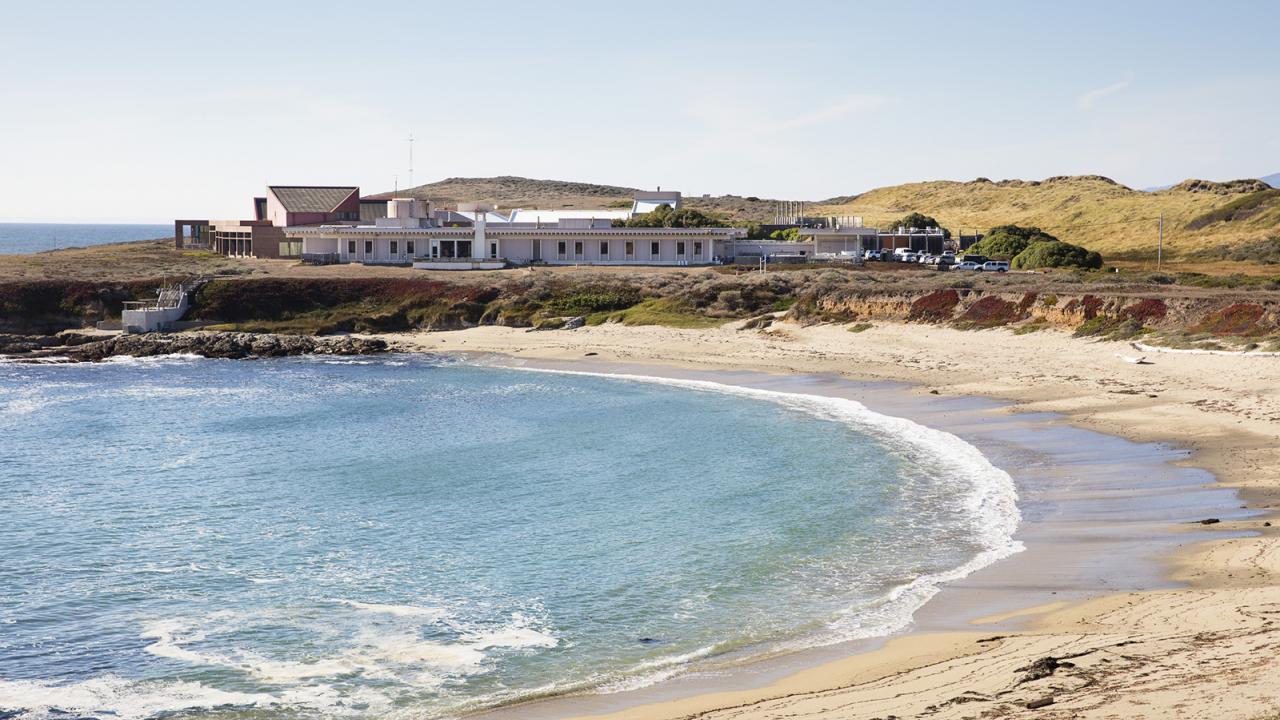
Santa Rosa Junior College and Bodega Marine Laboratory Offer Innovative Internship Opportunities
This partnership between the Santa Rosa Junior College and the UC Davis Bodega Marine Laboratory brings research projects to life and illuminates a path from junior college to university.
About the internship program
For the past five years, this graduate student-directed program has been a bridge between Santa Rosa Junior College students with an interest in the marine sciences and the UC Davis Bodega Marine Laboratory and Bodega Marine Reserve. As interns, the Junior College students are paired with mentors and given access to the tools, training, and time in the lab needed to design and conduct their own research projects.
This internship program relies on a combination of resources to operate, but one of the biggest funding sources is donations from the public, especially residents of Sonoma County and alumni from SRJC and UC Davis. The program strives to pay interns for their time, and the generosity of donors helps to make it possible for the majority of interns to be in paid positions and supports the program’s intent to offer access to underserved communities in the marine sciences and provide an equitable space for the development of emerging scientists.
For those interested in making a gift to this program, please visit the UC Davis Giving Site or the SRJC Foundation Site and know that any donation, of any size, makes a difference.

How does a marine science internship continue without the ocean?
When the COVID-19 pandemic hit, the internship program was faced with some difficult decisions. The program directors convened and agreed that being able to provide high-quality research experiences, which are so integral to the retention and success of students in STEM programs, was of the utmost importance, and worth taking on the difficulties of transitioning to virtual programming for 2020.
Their first task was to tackle the most obvious challenges: how could students still get access to hands-on research opportunities and how would they develop a sense of community within their cohort if the program went virtual? Program directors Hannah Palmer and Ashley Smart, both Graduate Students at UC Davis banded together to develop virtual programming that offered shared training and mentoring opportunities for students who were utilizing similar tools, workshops that emphasized professional development and communications, making the transition to a 4-year university, and careers in marine science.
Standout results in a summer of virtual programming
In spite of the unique challenges of this year’s internship, the program has already seen positive outcomes. Although the formal results of the intern’s research projects won’t be presented until mid-August, the team has noted that this cohort has built a strong sense of community even at a distance, with weekly meetings and workshops, grad students co-mentoring groups of interns, and even a mini cohort-within-a-cohort forming around the topic of Ocean Acidification. Hannah, Ashley, and Shawn Brumbaugh from the Junior College have even teamed up to create an abstract of their experiences in transitioning the program to a virtual setting, which will be presented virtually in December to the AGU (American Geophysical Union).
Meet the 2020 Interns
Get to know some of our 2020 SRJC interns, and read what they had to say about their research and experience in the program this year. Or explore previous years' experiences on our blog.
How can SRJC students who are interested in the program apply?
This internship typically begins accepting internships in March, with applications due in late April, and places a lot of emphasis on bringing intentionality to the selection process. Rather than basing decisions on GPA or what year of schooling a student is in, the program directors actively seek out students who demonstrate enthusiasm and willingness to take part in the research process, and including feedback from one of their professors at the Junior College as part of the selection process. Applicants interested in the 2021 internships can find out more details about the application process on the program’s website.
How to find out more:
For information about the Internship Program, please contact Hannah Palmer or Ashley Smart from UC Davis or Shawn Brumbaugh from SRJC.
For general requests for information about the UC Davis Coastal and Marine Sciences Institute and the Bodega Marine Laboratory, please contact us here.
